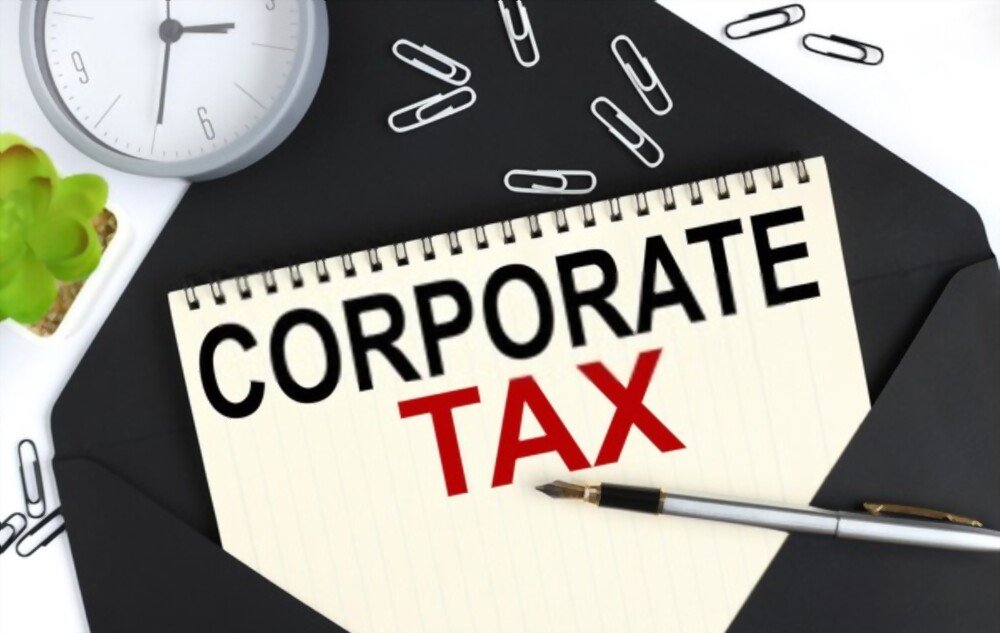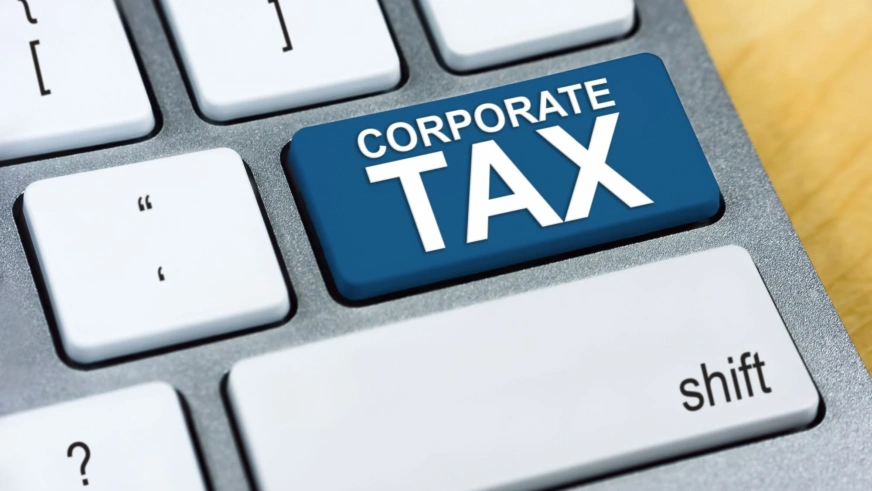Taxable Person
1. Corporate Tax shall be imposed on a Taxable Person at the rates determined under this Decree-Law.
2. For the purposes of this Decree-Law, a Taxable Person shall be either a Resident Person or a Non-Resident Person.
3. A Resident Person is any of the following Persons:
a) A juridical person that is incorporated or otherwise established or recognised under the applicable legislation of the State, including a Free Zone Person.
b) A juridical person that is incorporated or otherwise established or recognised under the applicable legislation of a foreign jurisdiction that is effectively managed and controlled in the State.
c) A natural person who conducts a Business or Business Activity in the State. VAT Registration
d) Any other Person as may be determined in a decision issued by the Cabinet at the suggestion of the Minister.
4. A Non-Resident Person is a Person who is not considered a Resident Person under Clause 3 of this Article and that either:
a) Has a Permanent Establishment in the State as under Article 14 of this Decree-Law.
b) Derives State Sourced Income as under Article 13 of this Decree-Law.
c) Has a nexus in the State as specified in a decision issued by the Cabinet at the suggestion of the Minister.
5. A branch in the State of a Person referred to in Clause 3 of this Article, shall be treated as one and the same Taxable Person.
6. The Cabinet shall, upon a suggestion of the Minister and in coordination with the relevant competent authorities, issue a decision specifying the categories of Business or Business Activity conducted by a resident or non-resident natural person that are subject to
Corporate Tax under this Decree-Law.
Corporate Tax Base
1. A Resident Person, which is a juridical person, is subject to Corporate Tax on its Taxable Income derived from the State or from outside the State, in accordance with the provisions of this Decree-Law.
2. The Taxable Income of a Resident Person, which is a natural person, is the income derived from the State or from outside the State insofar as it relates to the Business or Business Activity conducted by the natural person in the State as set out in Clause 6 of Article 11 of this Decree-Law.
3. A Non-Resident Person is subject to Corporate Tax on vat services uae the following:
a) The Taxable Income that is attributable to the Permanent Establishment of the Non-Resident Person in the State.
b) State Sourced Income that is not attributable to a Permanent Establishment of the Non-Resident Person in the State.
c) The Taxable Income that is attributable to the nexus of the Non-Resident Person in the State as determined in a decision issued by the Cabinet pursuant to paragraph
(c) of Clause 4 of Article 11 of this Decree-Law.
State Sourced Income
1. Income shall be considered State Sourced Income in any of the following instances:
a) Where it is derived from a Resident Person.
b) Where it is derived from a Non-Resident Person and the income received has been paid or accrued in connection with, and attributable to, a Permanent Establishment of that Non-Resident Person in the State.
c) Where it is otherwise accrued in or derived from activities performed, assets located, capital invested, rights used, or services performed or benefitted from in the State.
2. Subject to any conditions and limitations that the Minister may determine, State Sourced Income shall include, without limitation:
a) Income from the sale of goods in the State.
b) Income from the provision of services that are rendered or utilised or benefitted from in the State.
c) Income from a contract insofar as it has been wholly or partly performed or benefitted from in the State.
d) Income from movable or immovable property in the State.
e) Income from the disposal of shares or capital of a Resident Person.
f) Income from the use or right to use in the State, or the grant of permission to use in the State, any intellectual or intangible property.
g) Interest that meets any of the following conditions:
1. The loan is secured by movable or immovable property located in the State.
2. The borrower is a Resident Person.
3. The borrower is a Government Entity.
h) Insurance or reinsurance premiums in any of the following instances:
1. The insured asset is located in the State.
2. The insured Person is a Resident Person.
3. The insured activity is conducted in the State.
Permanent Establishment
1. A Non-Resident Person has a Permanent Establishment in the State in any of the following instances Tax Invoice:
a) Where it has a fixed or permanent place in the State through which the Business of the Non-Resident Person, or any part thereof, is conducted.
b) Where a Person has and habitually exercises an authority to conduct a Business or Business Activity in the State on behalf of the Non-Resident Person.
c) Where it has any other form of nexus in the State as specified in a decision issued by the Cabinet at the suggestion of the Minister.
2. For the purposes of paragraph (a) of Clause 1 of this Article, a fixed or permanent place in the State includes:
a) A place of management where management and commercial decisions that are necessary for the conduct of the Business are, in substance, made.
b) A branch.
c) An office.
d) A factory.
e) A workshop.
f) Land, buildings and other real property.
g) An installation or structure for the exploration of renewable or non-renewable natural resources.
h) A mine, an oil or gas well, a quarry or any other place of extraction of natural resources, including vessels and structures used for the extraction of such resources.
i) A building site, a construction project, or place of assembly or installation, or supervisory activities in connection therewith, but only if such site, project or activities, whether separately or together with other sites, projects or activities, last more than (6) six months, including connected activities that are conducted at the site or project by one or more Related Parties of the Non-Resident Person.
3. Notwithstanding Clauses 1 and 2 of this Article, a fixed or permanent place in the State shall not be considered a Permanent Establishment of a Non-Resident Person if it is used solely for any of the following purposes:
a) Storing, displaying or delivering of goods or merchandise belonging to that Person.
b) Keeping a stock of goods or merchandise belonging to that Person for the sole purpose of processing by another Person.
c) Purchasing goods or merchandise or collecting information for the Non-Resident Person.
d) Conducting any other activity of a preparatory or auxiliary nature for the Non- Resident Person.
e) Conducting any combination of activities mentioned in paragraphs (a), (b), (c) and
(d) of Clause 3 of this Article, provided that the overall activity is of a preparatory or auxiliary nature.
4. Clause 3 of this Article shall not apply to a fixed or permanent place in the State that is used or maintained by a Non-Resident Person if the same Non-Resident Person or its Related Party carries on a Business or Business Activity at the same place or at another place in the State where all of the following conditions are met:
a) Where the same place or the other place constitutes a Permanent Establishment of the Non-Resident Person or its Related Party.
b) The overall activity resulting from the combination of the activities carried out by the Non-Resident Person and its Related Party at the same place or at the two places is not of a preparatory or auxiliary nature and together would form a cohesive Business operation, had the activities not been fragmented.
5. For the purposes of paragraph (b) of Clause 1 of this Article, a Person shall be considered as having and habitually exercising an authority to conduct a Business or Business Activity in the State on behalf of a Non-Resident Person if any of the following conditions are met:
a) The Person habitually concludes contracts on behalf of the Non-Resident Person.
b) The Person habitually negotiates contracts that are concluded by the Non-Resident Person without the need for material modification by the Non-Resident Person.
6. The provisions of Paragraph (b) of Clause 1 of this Article shall not apply where the Person conducts a Business or Business Activity in the State as an independent agent and acts for the Non-Resident Person in the ordinary course of that Business or Business Activity, unless the Person acts exclusively or almost exclusively on behalf of the Non-Resident Person, or where that Person cannot be considered legally or economically independent from the Non-Resident Person.
7. For the purposes of Clause 3 of this Article, the Minister may prescribe the conditions under which the mere presence of a natural person in the State does not create a Permanent Establishment for a Non-Resident Person in any of the following instances:
a) Where such presence is a consequence of a temporary and exceptional situation.
b) Where the natural person is employed by the Non-Resident Person, and all of the following conditions are met:
1. The activities being conducted in the State by the natural person are not part of the core income-generating activities of the Non-Resident Person or its Related Parties.
2. The Non-Resident Person does not derive State Sourced Income.
Investment Manager Exemption
1. For the purposes of Clause 6 of Article 14 of this Decree-Law, an Investment Manager shall be considered an independent agent when acting on behalf of a Non-Resident Person, where all of the following conditions are met:
a) The Investment Manager is engaged in the business of providing investment management or brokerage services.
b) The Investment Manager is subject to the regulatory oversight of the competent authority in the State.
c) The transactions are carried out in the ordinary course of the Investment
Manager’s Business.
d) The Investment Manager acts in relation to the transactions in an independent capacity.
e) The Investment Manager transacts on an arm’s length basis with the Non-Resident Person and receives due compensation for the provision of services.
f) The Investment Manager is not the Non-Resident Person’s representative in the State in relation to any other income or transaction that is subject to Corporate Tax for the same Tax Period.
g) Any such other conditions as may be prescribed in a decision issued by the Cabinet at the suggestion of the Minister.
2. For the purposes of Clause 1 of this Article, “transactions” means any of the following:
a) Transactions in commodities, real property, bonds, shares, derivatives or securities of any other description.
b) Transactions of buying or selling any foreign currency or placement of funds at interest.
c) Such other transactions permissible to be carried out by the Investment Manager on behalf of a Non-Resident Person under the applicable legislation of the State.
Partners in an Unincorporated Partnership
1. Unless an application is made under Clause 8 of this Article, and subject to any conditions the Minister may prescribe, an Unincorporated Partnership shall not be considered a Taxable Person in its own right, and Persons conducting a Business as an Unincorporated
Partnership shall be treated as individual Taxable Persons for the purposes of this Decree- Law.
2. Where Clause 1 of this Article applies, a Person who is a partner in an Unincorporated Partnership shall be treated as:
a) Conducting the Business of the Unincorporated Partnership.
b) Having a status, intention, and purpose of the Unincorporated Partnership.
c) Holding assets that the Unincorporated Partnership holds.
d) Being party to any arrangement to which the Unincorporated Partnership is a party.
3. For the purposes of Clause 1 of this Article, the assets, liabilities, income and expenditure of the Unincorporated Partnership shall be allocated to each partner in proportion to their distributive share in that Unincorporated Partnership, or in the manner prescribed by the Authority where the distributive share of a partner cannot be identified.
4. The Taxable Income of a partner in an Unincorporated Partnership shall take into account the following:
a) Expenditure incurred directly by the partner in conducting the Business of the Unincorporated Partnership.
b) Interest expenditure incurred by the partner in relation to contributions made to the capital account of the Unincorporated Partnership.
5. Interest paid by an Unincorporated Partnership to a partner on their capital account shall be treated as an allocation of income to the partner and is therefore not a deductible expenditure for calculating the Taxable Income of the partner in the Unincorporated Partnership.
6. For the purposes of calculating and settling the Corporate Tax Payable of a partner in an Unincorporated Partnership under Chapter Thirteen of this Decree-Law, any foreign tax incurred by the Unincorporated Partnership shall be allocated as a Foreign Tax Credit to each partner in proportion to their distributive share in the Unincorporated Partnership.
7. A Foreign Partnership shall be treated as an Unincorporated Partnership for the purposes of this Decree-Law where all of the following conditions are met:
a) The Foreign Partnership is not subject to tax under the laws of the foreign jurisdiction.
b) Each partner in the Foreign Partnership is individually subject to tax with regards to their distributive share of any income of the Foreign Partnership as and when the income is received by or accrued to the Foreign Partnership.
c) Any other conditions as may be prescribed by the Minister.
8. The partners in an Unincorporated Partnership can make an application to the Authority for the Unincorporated Partnership to be treated as a Taxable Person.
9. Where an application under Clause 8 of this Article is approved:
a) The provisions of Clauses 1 to 6 of this Article shall no longer apply to the partners in the Unincorporated Partnership in respect of the Business conducted by the Unincorporated Partnership.
b) Each partner in the Unincorporated Partnership shall remain jointly and severally liable for the Corporate Tax Payable by the Unincorporated Partnership for those Tax Periods when they are partners in the Unincorporated Partnership.
c) One partner in the Unincorporated Partnership shall be appointed as the partner responsible for any obligations and proceedings in relation to this Decree-Law on behalf of the Unincorporated Partnership.
10. Where the application under Clause 8 of this Article is approved, the Unincorporated Partnership shall be treated as a Taxable Person effective from the commencement of the Tax Period in which the application is made, or from the commencement of a future Tax Period, or any other date determined by the Authority.
Family Foundation
1. A Family Foundation can make an application to the Authority to be treated as an Unincorporated Partnership for the purposes of this Decree-Law where all of the following conditions are met:
a) The Family Foundation was established for the benefit of identified or identifiable natural persons, or for the benefit of a public benefit entity, or both.
b) The principal activity of the Family Foundation is to receive, hold, invest, disburse, or otherwise manage assets or funds associated with savings or investment.
c) The Family Foundation does not conduct any activity that would have constituted a Business or Business Activity under Clause 6 of Article 11 of this Decree-Law had the activity been undertaken, or its assets been held, directly by its founder, settlor, or any of its beneficiaries.
d) The main or principal purpose of the Family Foundation is not the avoidance of Corporate Tax.
e) Any other conditions as may be prescribed by the Minister.
2. Where the application under Clause 1 of this Article is approved, the Family Foundation shall be treated as an Unincorporated Partnership effective from the commencement of the Tax Period in which the application is made, or from the commencement of a future Tax Period, or any other date determined by the Authority.
3. For the purposes of monitoring the continued compliance by a Family Foundation with the conditions of Clause 1 of this Article, the Authority may request any relevant information or records from the Family Foundation within the timeline specified by the Authority.
+9 71 4 393 1773
info@thevatconsultant.com
https://thevatconsultant.com





























